Domestic liquidity rose by LE109 billion to LE10.09 trillion in April 2024, up from LE9.98 trillion in a month earlier, according to data from the Central Bank of Egypt (CBE).
Egypt’s money supply increased to LE2.48 trillion in April, up from LE2.46 trillion in March. Currency in circulation outside the central bank rose to LE1.15 trillion in April, against LE1.11 trillion in the previous month, CBE data showed.

Demand deposits in local currency fell to LE1.32 trillion in April, compared to LE1.34 trillion in December 2022. Quasi-money stood at LE7.61 trillion in April, against LE7.52 trillion in March, according to CBE data.
Consumer financing jumps 44%
Local consumer financing jumped by 44 per cent, year-on-year, to LE8.71 billion on the January-February period in 2024, up from LE6.05 billion on the same period a year earlier, according to data from the Financial Regulatory Authority (FRA).
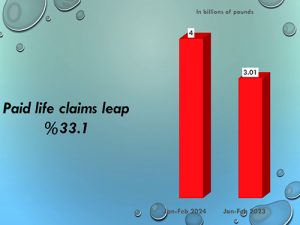
The number of consumer financing beneficiaries fell by 2.2 per cent, year-on-year, to 525,400 on the January-February period, down from 537,300 on the same period in 2023.
In February, consumer financing rose by 11.6 per cent, year-on-year, to LE3.51 billion, up from LE3.14 billion in the same month in 2023, according to FRA data.
The number of consumer financing beneficiaries declined by 2.9 per cent, year-on-year, to 258,000 in February 2024, down from 266,000 in the same month in 2023, according to FRA data.
Consumer financing surged 58.8 per cent, year-on-year, to LE47.27 billion in 2023, up from LE29.76 billion a year earlier, according to FRA data.
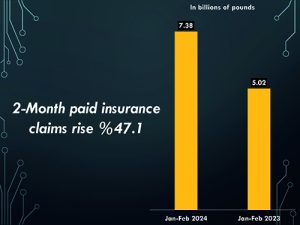
The number of consumer financing beneficiaries jumped by 21.2 per cent, year-on-year, to 3.38 million in 2023, up from 2.79 million in 2022.
Egypt PMI hits 3-year high
Egypt’s purchasing managers’ index (PMI) rose to its highest level in nearly three years in May and was close to reaching growth territory, as a marked cooling of inflationary pressures since the early part of 2024 spurred a near-stabilisation in demand conditions, S&P Global said last week.
Business activity dropped at the slowest rate since last July, while firms took on more staff amid growing confidence that sales will begin to improve.
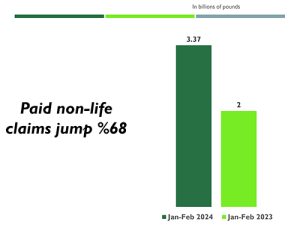
“At 49.6 in May, the headline PMI rose from 47.4 in April to reach its highest level since August 2021. Whilst still below the 50.0 no-change mark, the index signalled only a marginal decline in operating conditions,” said an S&P Global report, a copy of which was made available to the Egyptian Mail.
Confidence towards the 12-month outlook ticked higher in May, as firms’ hopes that economic conditions will strengthen grew. Improved prospects encouraged companies to increase their staffing numbers for the second time in three months, while purchases of inputs declined at the slowest rate since February 2022.
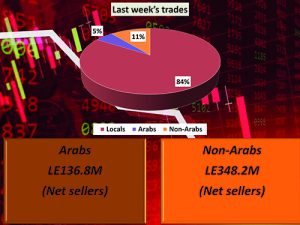
“With input cost inflation easing further, the data nonetheless signals a promising outlook for Egyptian businesses. Purchase costs rose at their slowest rate in four years, leading to only a mild increase in selling prices, which should give customers greater confidence to spend. Business optimism also ticked higher and job levels expanded, showing that firms are likewise projecting an improvement in economic conditions,” said David Owen, senior economist at S&P Global Market Intelligence.
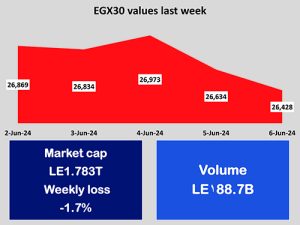



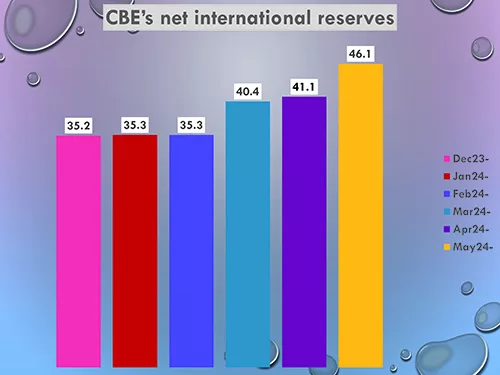


Discussion about this post